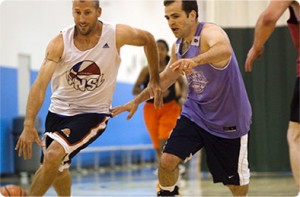 Football season is in full swing in the U.S.!
Football season is in full swing in the U.S.!
Most people who follow professional sports have ideas about why some teams prosper while others don’t. Usually, those ideas are personal opinions. But is there any evidence about what components make a winning professional sports team?
Researchers from Insead business school in France and Columbia University in New York City uncovered some evidence on the topic. They published a study this month in Psychological Science that examined whether a team could have too much talent. The answer they found is, yes.
For the study, researchers conducted a series of experiments using data from the FIFA World Cup 2010, and 2014 qualifying periods, the 2002-2012 National Basketball Association, and Major League Baseball seasons.
For each of the three sports, they identified the best players across the globe, and then counted how many of these best players each team had. Then they devised a complicated points system to determine how well teams performed compared with how well they should have performed given players’ talent.
This is what they found: “For teams requiring high levels of interdependence, like football and basketball, talent facilitates team performance, but only up to a point. Beyond this point, the benefits of adding more top talent will decrease and eventually hurt the team performance because they fail to coordinate their actions,” explained lead author, INSEAD Professor Roderick Swaab.
For baseball, which is a more individualistic sport, high levels of talent did not harm performance.
The take-home message is clear: In sports that require teamwork, the ability of the team to work together is more important than the raw talent of the players.



Speak Your Mind